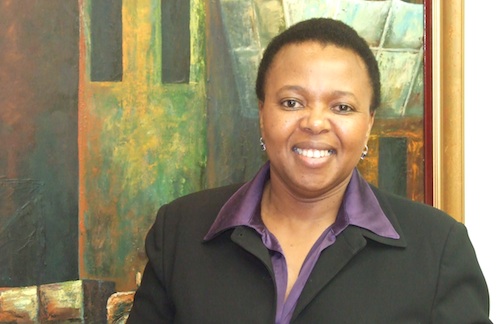
The pressure is on at Telkom. The JSE-listed telecommunications group says tougher trading conditions, growing competition, regulatory challenges and fixed-to-mobile substitution have put pressure on revenue and profit margins in the first half of its 2012 financial year.
Telkom had signed up more than 1,1m subscribers to its mobile service 8ta by the end of September, with each customer generating revenue of R63,32/month. However, group CEO Nombulelo Moholi says 8ta is taking “longer than expected” to reach its targets. This, coupled with pressure on its traditional fixed-line business and growing competition in data services, is putting downward pressure on its financial performance.
8ta generated revenue of R301m and a loss before interest, tax, depreciation and amortisation of R1,1bn for the six months ending 30 September 2011. Average monthly revenue per user (Arpu) from prepaid customers was R20,47 and post-paid was R286,09.
At the end of September, 8ta’s market share was 1,9%. “Our main challenge is slower than budgeted prepaid growth. Issues with getting distribution fully up and running have slowed us down. We are working jointly with our distribution partners to complete systems integration and are designing innovative commission structures to grow our footprint.”
In the six-month period, Telkom grew its broadband digital subscriber line user base by 13,7% to 795 419 and calling-plan subscribers by 4,7% to 797 827.
However, operating revenue declined by 3,2% to R16,4bn on the back of a 5,5% fall in voice revenue and a 7,9% decline in data revenue and an increase in operating expenses of 8,2% to R15,4bn.
This conspired to depress profit margins — as measured using earnings before interest, tax, depreciation and amortisation, or Ebitda — to 26,9%, from 31,3% a year ago.
Headline earnings per share from continuing operations declined by 35,5%.
“The six months under review have been very challenging,” says Moholi. “The traditional fixed-line market is shrinking as fixed-line voice moves to mobile and into less profitable data revenue streams and as price competition intensifies particularly in the data market.”
She says line losses continue and “self provisioning”, where other operators lessen their reliance on Telkom for their networks, is growing. This is affecting the group’s wholesale revenues. Regulatory intervention through termination rate cuts — the calls operators charge each other to carry calls onto their networks — is cutting into its revenue line.
The sharp increase in operating expenditure is largely as a result of the R445m impairment of Africa business iWayAfrica, higher depreciation which reflects Telkom’s on-going investment in its network and mobile start-up expenditure after intercompany eliminations of R1,4bn.
“The fixed-line business kept costs in check with operating expenditure decreasing by 3,9% to R11,7bn” Moholi says. “Growing the Ebitda margin in the fixed-line business from 37,5% to 39,1% given current market conditions is an achievement.”
She says cost control will remain a key area of focus. “Our results paint a tough picture of current operations,” Moholi says. “It is therefore imperative that we move into select adjacent markets to grow our revenue streams. We are transforming our network to allow us to move further into the mobile and select value-added ICT markets.” — Staff reporter, TechCentral
- Subscribe to our free daily newsletter
- Follow us on Twitter or on Google+ or on Facebook
- Visit our sister website, SportsCentral (still in beta)




